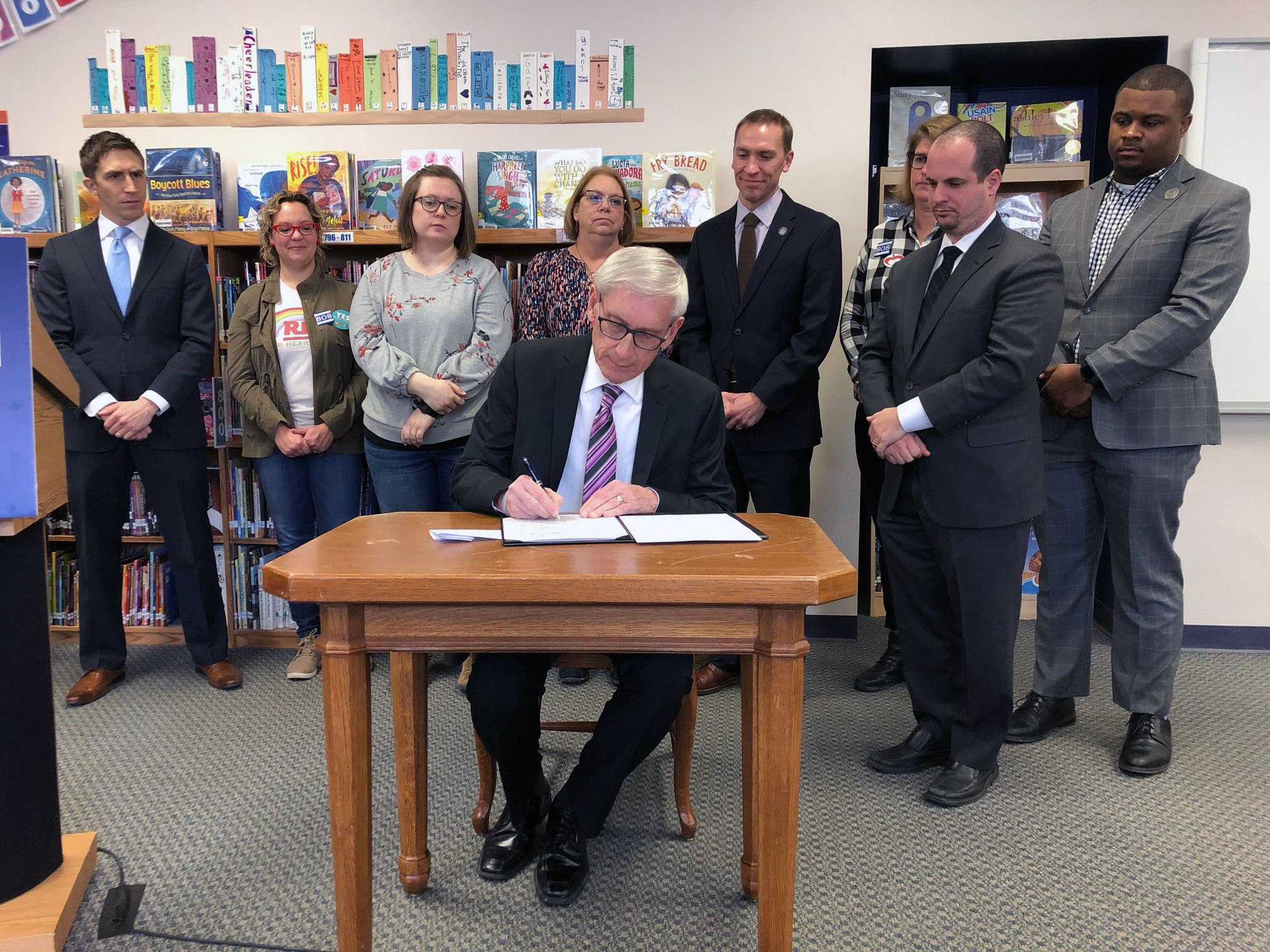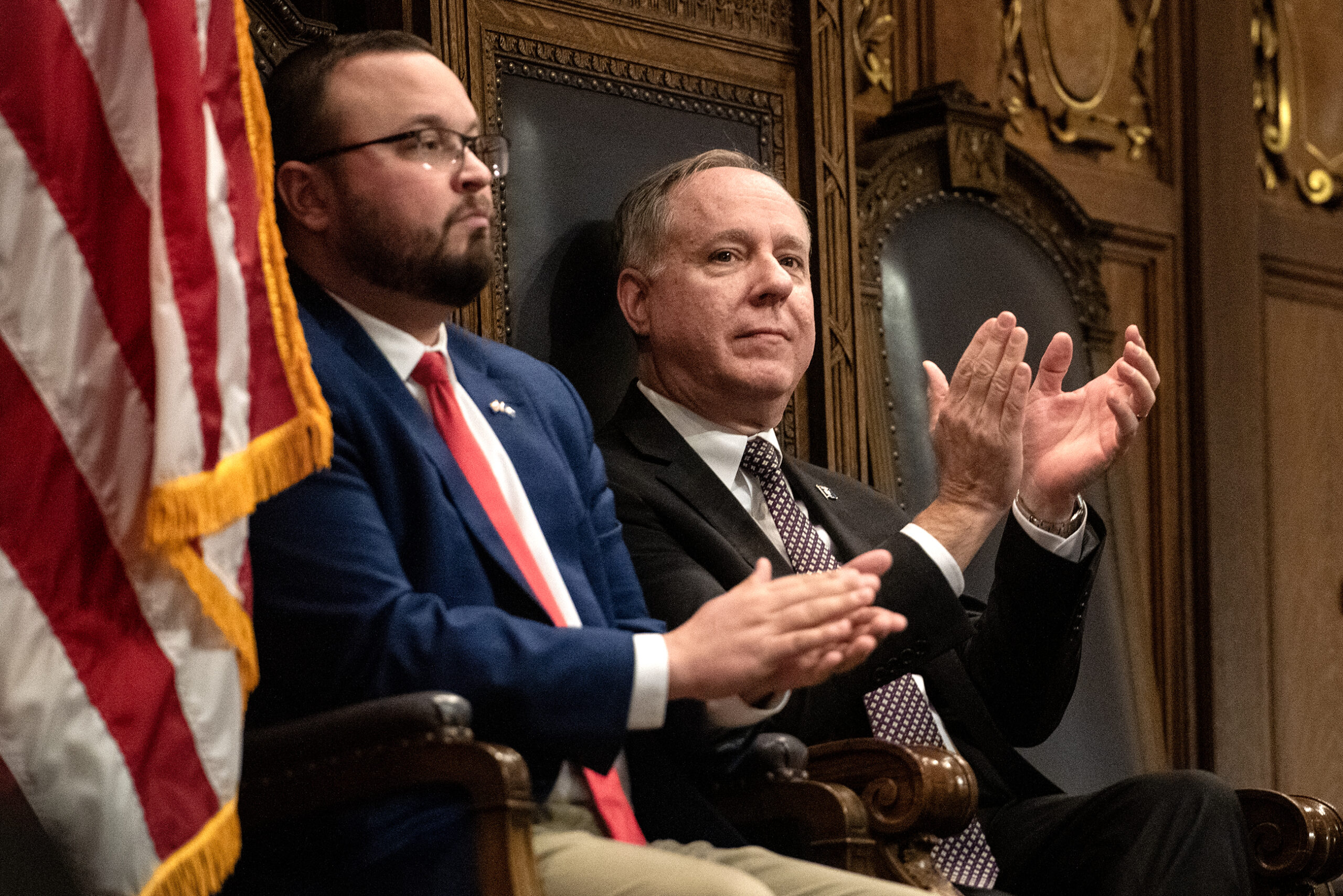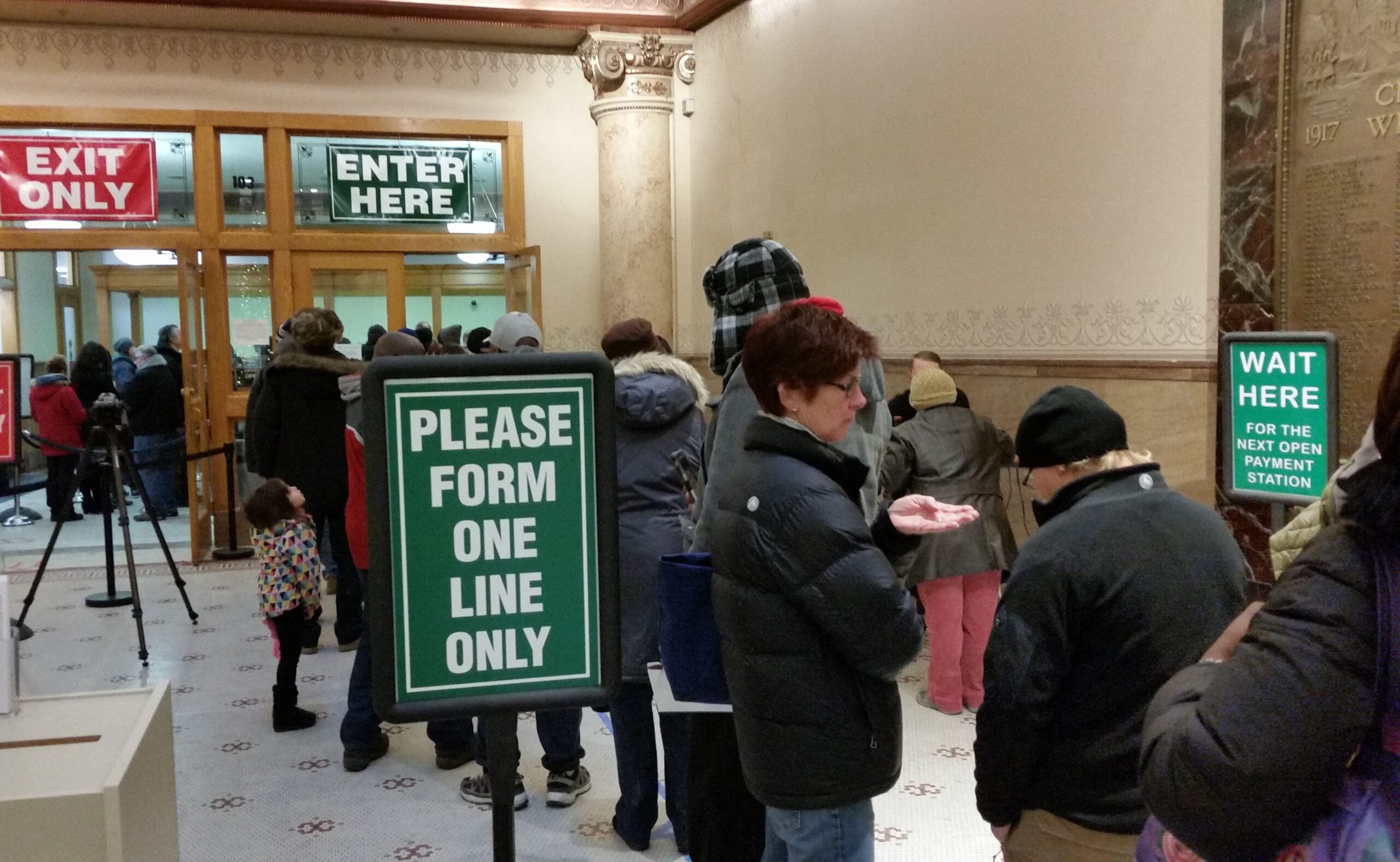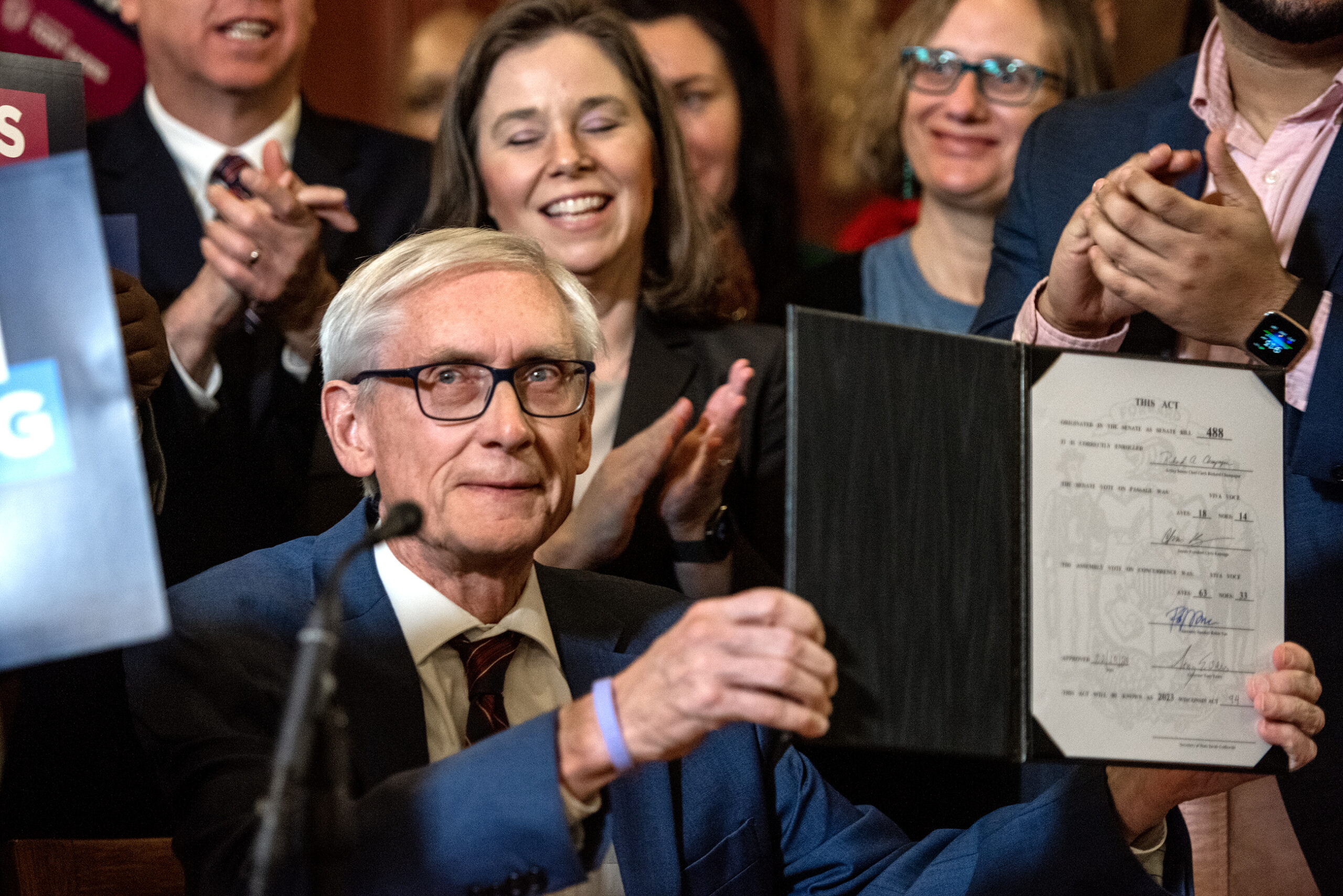Democratic Gov. Tony Evers vetoed a Republican-backed tax cut bill Wednesday and signaled he could support a compromise that invests in schools and provides broad property tax relief.
Evers also said he’s open to considering an income tax cut or an additional state debt payment.
“Investing in our kids and our schools and reducing property taxes should be something everyone can agree on,” Evers said Wednesday morning at Lincoln Elementary School in Wauwatosa. “We don’t have to choose between investing in our kids and reducing property taxes — we can and should do both.”
News with a little more humanity
WPR’s “Wisconsin Today” newsletter keeps you connected to the state you love without feeling overwhelmed. No paywall. No agenda. No corporate filter.
Republicans in the state Senate and Assembly passed the $248 million ongoing income tax cut Thursday. The overall bill would have cost the state $392 million in the next budget.
It would have also included about $45 million to offset a new property tax cut for manufacturing businesses and $100 million for a one-time payment on state debt.
RELATED: GOP Tax Cut Now In Evers’ Hands
“I know Republicans in the Legislature don’t want to have to explain to their constituents why they don’t support our schools or reduce property taxes,” Evers said. “The good news is, there is still time to do the right thing. It’s time for the Republicans to put politics aside, so we can do what’s right for our kids, our schools and of course our property tax payers.”
The GOP bill would have spent down a projected surplus in Wisconsin’s budget brought about by an estimated $818 million increase in tax collections.
Evers has been saying for weeks he wanted to use the surplus on school funding.
In early February, he introduced a bill that would spend roughly $250 million on schools, with $130 million of that aimed at reducing property taxes through the state’s school aid formula.
The governor’s plan would have also restored the state’s commitment to funding two-thirds of the cost of education.
“We cannot continue to ignore the fact that for the past 10 years the state has been asleep on the job when it comes to fully funding our schools, and that folks across our state are seeing an increase in their property taxes,” Evers said. “It’s time for Republicans to put politics aside, and let’s work together to find a compromise that works for everyone.”
RELATED: Evers Calls For $250M Increase In Public School Spending
Senate Majority Leader Scott Fitzgerald, R-Juneau, told reporters Wednesday afternoon in Milwaukee he was disappointed in the governor’s decision. Fitzgerald said the governor told him he was considering signing the bill during a meeting last week in the governor’s office.
“I don’t think there’s any common ground between now and January or February of next year, whenever the governor chooses to roll out that next budget, because he’s going to have to set a new list of priorities, and we don’t know what those are right now,” Fitzgerald said.
In a statement Wednesday afternoon, the Republican senator said: “Since last fall, I’ve said that I support another middle-class tax cut for hard-working Wisconsin families. I am extremely proud that Republican majorities in the Legislature pulled together and passed a plan that cut income taxes, slashed the personal property tax, paid down debt, and put money away in the state’s rainy day fund.
“While I’m disappointed in the governor’s actions, I’m not surprised — this is the second income tax cut he’s vetoed as governor. His budget proposal last summer included over $1 billion in tax hikes. Republicans in the Legislature will continue to hold the line against his far-left agenda.”
Fitzgerald said he’s considering a veto override and that Assembly Speaker Robin Vos, R-Rochester, has already urged him to move in that direction.
“We’ll have that discussion in caucus and make that decision,” Fitzgerald said.
Editor’s note: This story has been updated to include comments from Senate Majority Leader Scott Fitzgerald.
Wisconsin Public Radio, © Copyright 2026, Board of Regents of the University of Wisconsin System and Wisconsin Educational Communications Board.





